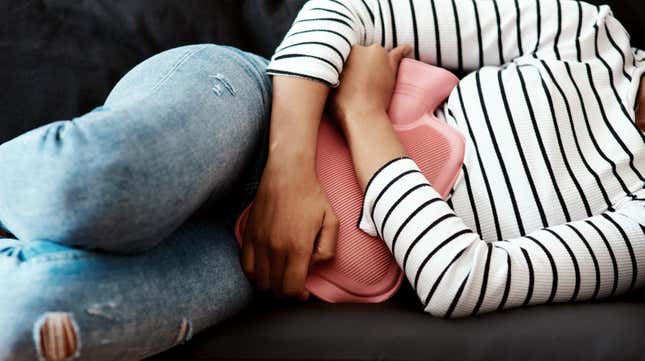Spain Will Offer Workers 3 Days of ‘Menstrual Leave.’ Your Move, America
Doctors say menstrual cramps can be “as painful as having a heart attack.” Yes, we know!!
HealthIn Depth

While the US is busy trying to end Roe v. Wade and transform people with uteruses into state-controlled incubators, Spain is on its way to becoming the first Western country to offer “menstrual leave” to workers, thanks to a new bill set to be approved by its government next week. The bill would offer three days of paid leave to workers dealing with extreme menstrual pain, and also ensure menstrual products are provided in schools.
“If someone has an illness with such symptoms, a temporary disability is granted, so the same should happen with menstruation—allowing a woman with a very painful period to stay at home,” Spain’s Secretary of State Equality and Gender Violence Angela Rodriguez told El Periodico newspaper, the Telegraph reports.
According to Anita Diamant, a period justice advocate and author of Period. End of Sentence, there have been different perspectives among feminists about menstrual leave for years, with some older advocates arguing that such a policy could actually be harmful to women and people who menstruate by acknowledging “weakness.” But Diamant’s own perspective is that a policy like this is an important step toward normalizing and acknowledging the experience of menstruation, and it should be implemented in the US and all countries.
“For me, it recognizes the fact that we don’t all live in the same body. Not all bodies are the same, and not all workers are the same,” she told Jezebel. “It shouldn’t be this idea that all bodies are like the male body that doesn’t have this necessary human function—which many people do deal with, without needing a day off, but they shouldn’t have to be the exception to the rule.”
-

-

-

-

-

-

-

-

-

-

-

-

-

-

-

-

-

-

-

-

-

-

-

-

-

-

-

-

-

-

-

-

-

-

-

-

-

-

-

-








































